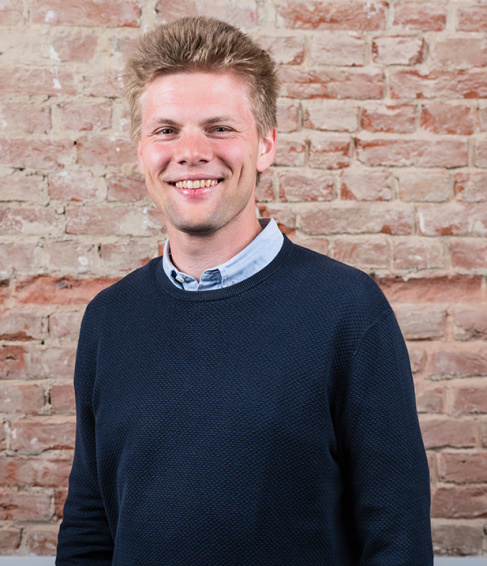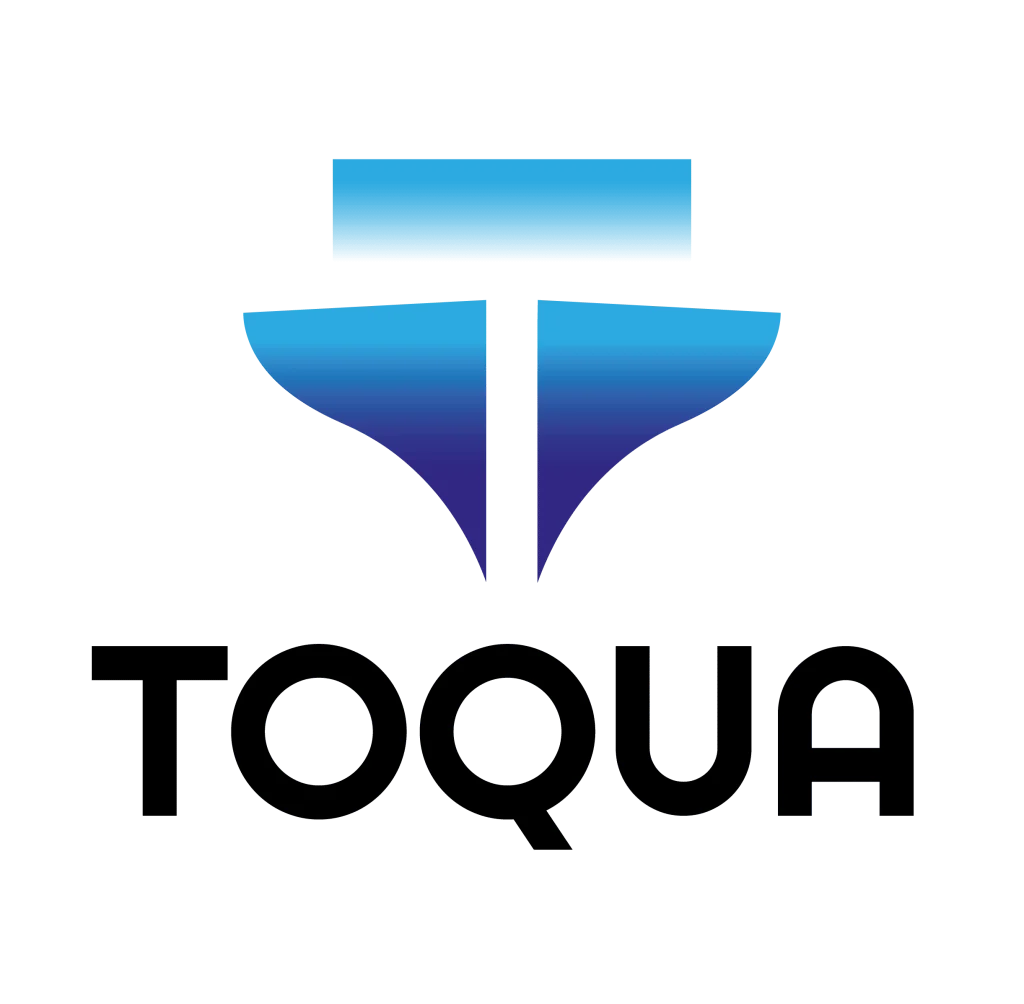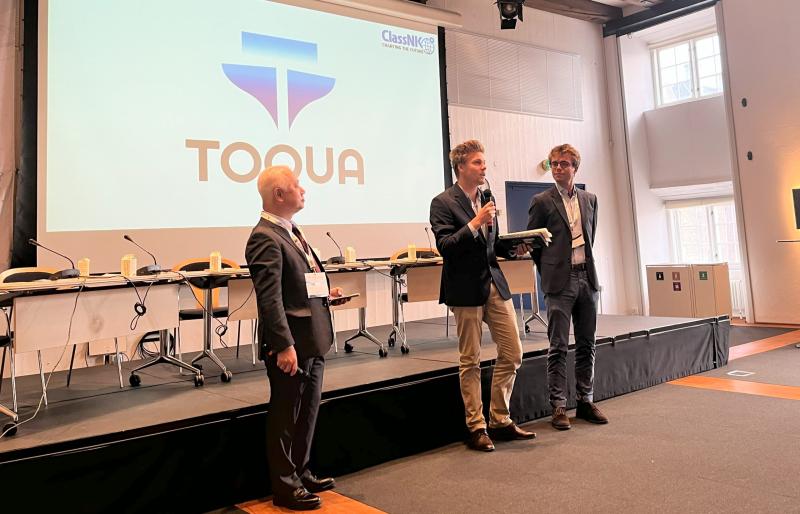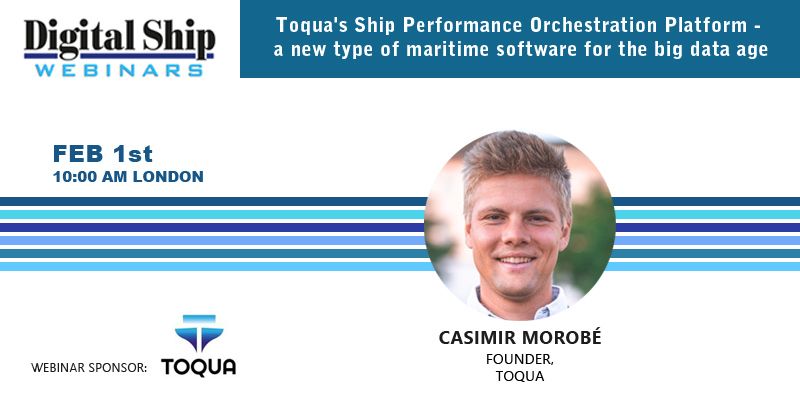
〆TOQUA possesses technology that combines ship sensors and AI utilization, aiming to decarbonize maritime operations.
I had the opportunity to interview Mr. Casimir Morobé, from TOQUA, based in Ghent, Belgium. TOQUA is a startup that utilizes ship sensors to collect data and employs artificial intelligence to analyze this data, achieving optimal navigation and fuel consumption. They have already started collaborations with Japanese shipping and trading companies. I spoke with CEO Casimir Morobé about TOQUA’s business strategy. This interview was published in the Japan Maritime Daily on May 14, 2024.(Interviewer: Hirofumi Yamamoto)
1) Please tell us about TOQUA, including the year it was founded and the location of its
Headquarters.
Toqua was an idea that was in my head for a long time even before it materialized, but the shape of it started to form when I was working on my Master’s thesis. This revolved around the use of sensor data on vessels and applying machine learning to it and seeing that shipping companies could benefit from it considerably in terms of decreased consumption and more efficient fleet management. But at the same time and this is something that is close to my heart, by doing that, it would expedite the process of decarbonizing shipping. So in 2020 I founded Toqua in order to accelerate maritime decarbonization
We have been based in Ghent in Belgium since the inception of the company and have grown since then to a team of 10 people.

2) My understanding is that TOQUA specializes in maritime transport. Could you tell us more about TOQUA’s business activities?
While maritime transport is the main area into which we provide our services, we do in fact specialize in physics-informed AI models.This comes from the initial idea that big data is slowly but surely making its way into the shipping industry, but we have noticed that many companies are starting to collect data but possibly lack the resources to beneficially analyze and utilize this data.
And while collecting data is relatively straightforward, putting this data to work can prove to be hard without the right tools. And this can be for a myriad of reasons – the fleet can be owned or chartered in, vessels might have different sensor/system combinations, etc.
This is where we at Toqua add value to shipping companies – we make the most out of the sensor data that companies collect and give them insights that they can’t get with traditional tools available in the market.
3) Unlike traditional maritime digital transformation (DX) companies, TOQUA has the technology to aggregate data and optimize navigation. Where do you think TOQUA’s strengths lie?
Unlike the software providers that offer full suite solutions and focus on many aspects of the shipping operations at the same time, we decided to specialize in one aspect of it, which is the physics-informed AI modeling. This allows us to analyze and assess large amounts of data in order to give the most accurate insights to shipping companies about the current and future performance of their fleet. And by pioneering the approach to it, we have become the leading company in the market doing it.
We receive and distribute the data from and to our customers via API into their existing applications. Because we have taken an API-first approach it makes us highly compatible with other software providers in the market

4) What are TOQUA’s expectations for the Japanese market going forward?
In 2023 we won the Standardized Data Innovation Challenge which is an initiative launched by ClassNK and Smart Maritime Network. It has been a big honor to receive such a recognition, being selected as winners among more than 70 applicants, and even more so considering the panelists that chose us were from such distinguished companies like NYK Line, Mitsui OSK Lines, ‘‘K’ Line, Itochu, Mitsubishi and Marubeni.
Since then we have started projects with some of the largest and most renown Japanese shipping companies. The results are very promising so far, but it is too early to share anything publicly. We hope to do that soon!
The Japanese market is a very interesting one for us, as it is very mature in terms of data collection and data sharing. The IoS-OP consortium is the perfect example of this. We believe there’s a strong fit between our AI technology and the data-maturity of the Japanese market.

5) Please tell us about TOQUA’s future growth strategy and business strategy.
With our AI technology, we’ve realized huge fuel savings by supporting technical and operational departments, as we demonstrated at Euronav and other leading companies worldwide. Our strategy is to provide our technology in a very collaborative way with existing providers via API. So we’re never aiming to compete with existing solutions, we simply want to compliment using our AI and ship performance orchestration platform. This ensures any solution and any company can extract the most possible value out of the big data they collect. This reduces fuel costs considerably, but also emissions.
Lastly, we believe the next step is also getting this technology adopted in the commercial way of working, to facilitate transparent, data-driven, and incentive-aligning collaboration between owners and charterers. If we can get the financial incentives of the owners and charterers aligned, that will be a huge boost for maritime decarbonization.
And at the same time, I would take this opportunity to invite any interested companies to reach out to us